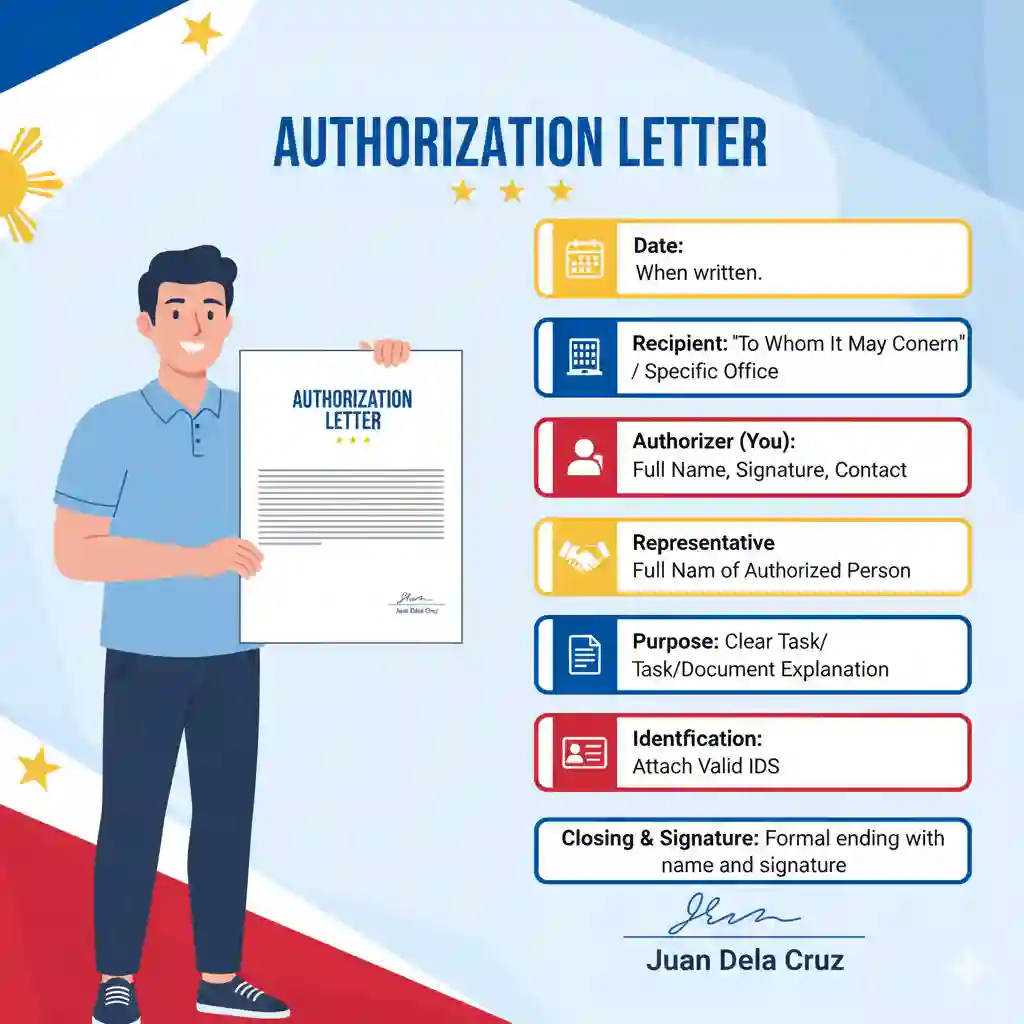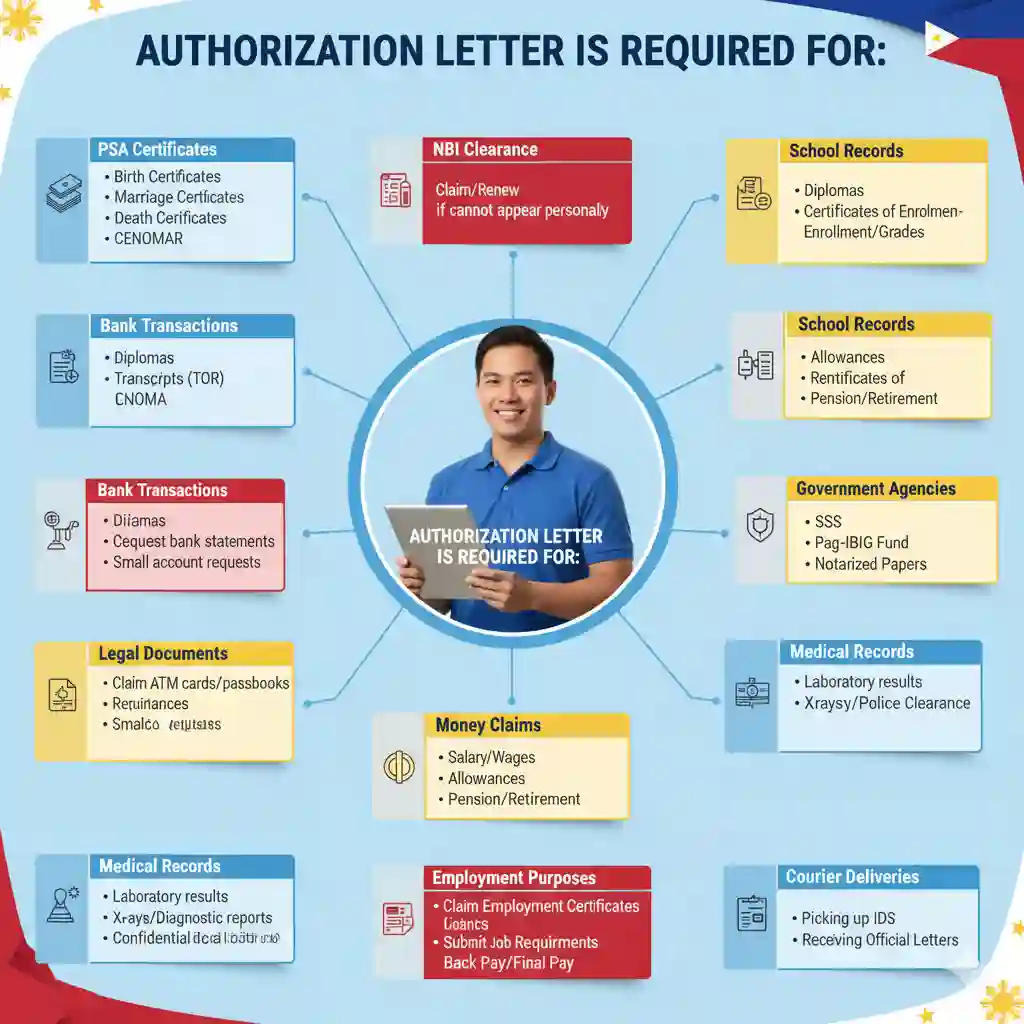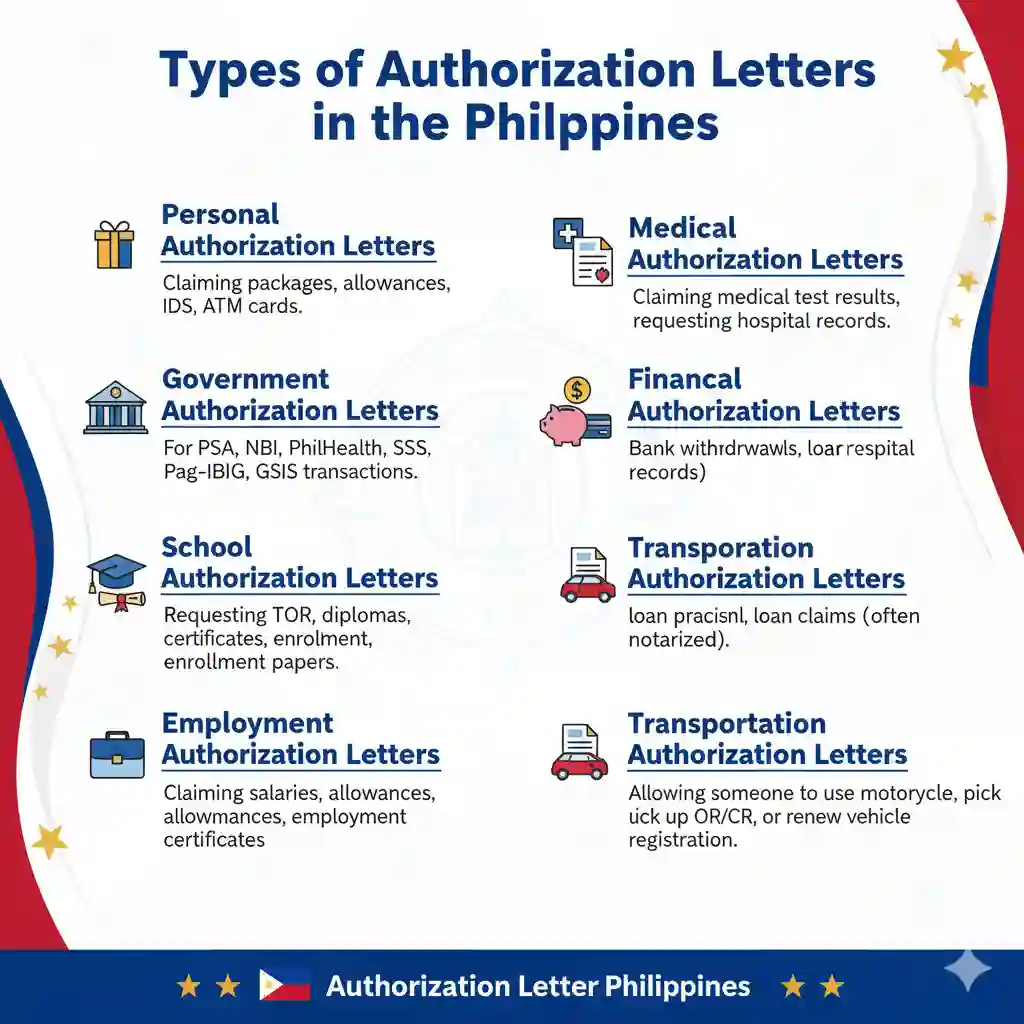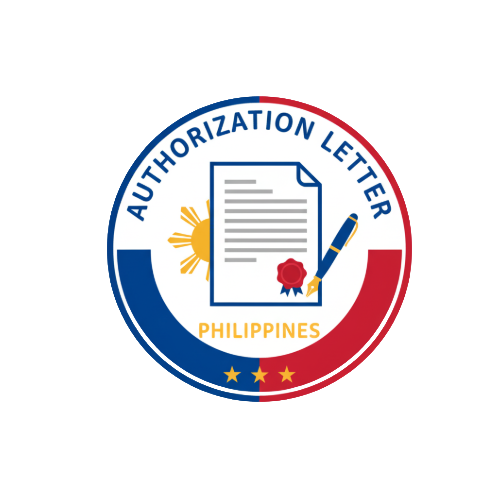Need an Authorization Letter sample urgently also don’t have time to write it? Don’t worry whether it’s for PSA, NBI, banks, or schools, we’ve got you covered. Use our free authorization letter generator, or browse ready-made samples, formats, and templates you can download right away weather in English or Taglog. Below, we’ll also explain what an authorization letter is, why it is important, and provide sample authorization letters you can use in different situations.
🇵🇭 Free Authorization Letter Generator
Create and download your official authorization letter instantly (English or Tagalog)
📄 Letter Preview
What is an Authorization Letter?
An authorization letter is a formal document that allows another person (your representative) to perform a task, sign documents, or claim something on your behalf. In the Philippines, many government offices, schools, banks, and even private companies require a signed permission letter before they will release documents or allow transactions to someone other than the applicant.

Authorization Letter Sample
How to Write an Authorization Letter?
Writing letter of authorization is simple if you follow the correct structure. Below is a step-by-step process you can use to make sure your letter is valid and accepted.
Step1: Start with the Date
Always begin your letter by writing the date at the top.
Step2: Address the Letter Properly
You can use “To Whom It May Concern” if the letter will be submitted to a general office. If you know the specific agency or office (e.g., PhilHealth Office, PSA, BPI Bank), address it directly for clarity.
Step 3: Introduce Yourself
State your full name and mention that you are authorizing another person to act on your behalf. Example:
“I, [Your Full Name], authorize [Representative’s Full Name]”
Step 4: Write the Name of Your Representative
Write the complete legal name of the person you are authorizing. Avoid using nicknames to prevent confusion.
Step 5: Clearly State the Task
Specify the exact purpose of the authorization, such as:
Step 6: Mention Attached Valid IDs
To validate the authorization, mention that you are attaching photocopies of your valid ID and your representative’s ID. Most offices in the Philippines require this. You can use the any of the following government issues id’s:
Step 7: End with a Polite Closing
Close your letter with a respectful phrase such as:
“Thank you for your assistance.”
This shows professionalism and courtesy.
Step 8: Sign Over Your Printed Name
At the bottom of the letter, sign your name above your printed name. This makes the document official and valid.
When Do You Need an Authorization Letter?
In the Philippines, many government and private institutions will not release documents or money to anyone other than the owner without a proper authorization letter. If you cannot personally appear, you’ll need to prepare one. Here are the most common situations where an authorization or legal consent letter is required:

PSA Certificates
You will need an authorization letter for PSA for claiming documents such as:
NBI Clearance
School Records
Students and graduates often need letter of authorization to request:
Bank Transactions
Banks in the Philippines ask for an authorization or consent letter for:
Government Agencies
Many government offices require consent letters for processing transactions in:
Money Claims
Used to authorize representatives to claim:
Legal Documents
For example:
Employment Purposes
Common uses include:
Medical Records
Hospitals and clinics often require letter of authorization to release:
Courier Deliveries
Courier companies and offices may ask for authorization or permission letters for:
Types of Authorization Letters in the Philippines
- Personal Authorization Letters
- Claiming packages, allowances, IDs, ATM cards.
- Government Authorization Letters
- Sample of authorization letter to claim documents for PSA, NBI, PhilHealth, SSS, Pag-IBIG, GSIS transactions.
- School Authorization Letters
- Requesting TOR, diplomas, certificates, enrollment papers.
- Employment Authorization Letters
- Sample authorization letter to claim money such as for claiming salaries, allowances, employment certificates.
- Medical Authorization Letters
- Claiming medical test results, requesting hospital records.
- Financial Authorization Letters
- Bank withdrawals, loan processing, insurance claims (often notarized).
- Transportation Authorization Letters
- Allowing someone to use a motorcycle( authorization letter for motorcycle), pick up OR/CR, or renew vehicle registration.

Benefits of Using an Authorization Letter
An authorization or permission letter is more than just a piece of paper it gives security, clarity, and convenience when you cannot personally attend to important matters. Here are the main benefits:
Convenience
Legal Protection
Clarity & Security
Time-Saving
Extra Tips for Writing an Authorization Letter
Common Mistakes to Avoid
Legal Value of an Authorization Letter in the Philippines
Authorization Letter vs. Special Power of Attorney (SPA)
Many Filipinos confuse these two. Here’s the difference:
|
Authorization Letter |
Special Power of Attorney (SPA) |
|
Simple, one-page letter |
Legal document, notarized (verified by the lawyer or attorney) |
|
Used for everyday tasks like PSA, school, deliveries |
Used for legal matters like property sales, loans, court appearances |
|
Signed by you only |
Requires witnesses and notarization |
|
Accepted in schools, government offices, couriers |
Required for banks, real estate, legal cases |
Tip: If your task involves money, property, or court matters, prepare an SPA instead of just a simple letter of authorization.
Why Government Offices Require Authorization Letters
- Security & Privacy: To ensure your documents are not released to unauthorized persons.
- Proof of Consent: To show that you allowed someone to act on your behalf.
- Accountability: If something goes wrong, the office has written proof of your representative.
Digital & Online Use of Authorization Letters
With many government services moving online, some now accept scanned or emailed authorization consents too, especially during emergencies.
Real-Life Scenarios Where Authorization Letters Save Time
Conclusion
A letter of authorization in the Philippines is a powerful document that saves time and makes transactions easier. Whether you need one for PSA, NBI, PhilHealth, SSS, school records, salary claims, or bank transactions, the process is simple as long as you follow the correct format.
Always remember:
Be clear and specific about the task.
Attach photocopies of valid IDs.
Use the sample templates above to create your own.
By preparing a proper authorization document, you make sure your representative can process your transactions smoothly, without delays.
